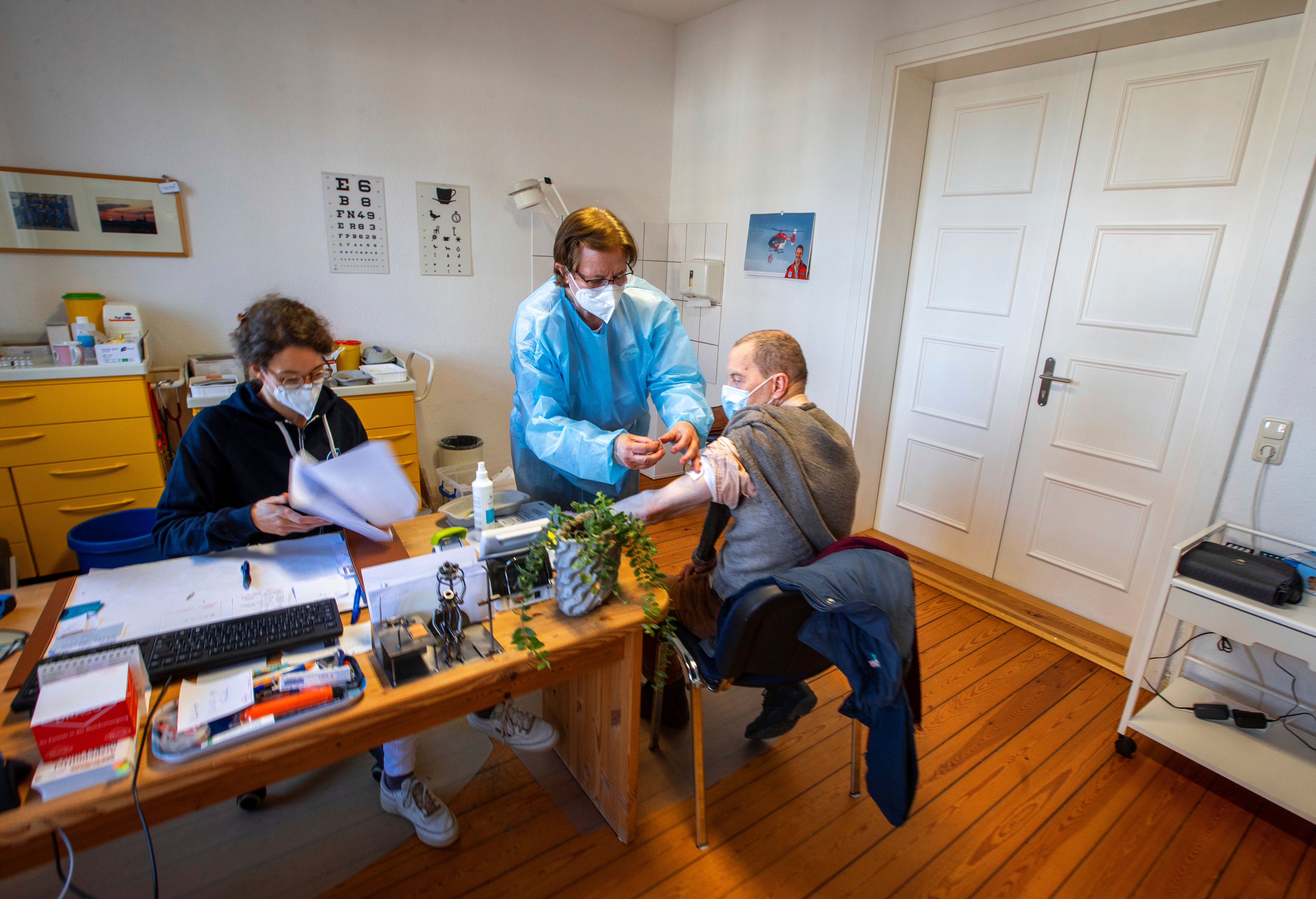EU gets extra vaccine doses to tackle virus border clusters
The European Commission has secured an agreement with Pfizer-BioNTech for an extra 4 million doses of COVID-19 vaccines to tackle a surge of coronavirus clusters that have prompted border restrictions

Your support helps us to tell the story
From reproductive rights to climate change to Big Tech, The Independent is on the ground when the story is developing. Whether it's investigating the financials of Elon Musk's pro-Trump PAC or producing our latest documentary, 'The A Word', which shines a light on the American women fighting for reproductive rights, we know how important it is to parse out the facts from the messaging.
At such a critical moment in US history, we need reporters on the ground. Your donation allows us to keep sending journalists to speak to both sides of the story.
The Independent is trusted by Americans across the entire political spectrum. And unlike many other quality news outlets, we choose not to lock Americans out of our reporting and analysis with paywalls. We believe quality journalism should be available to everyone, paid for by those who can afford it.
Your support makes all the difference.The European Commission has secured an agreement with Pfizer-BioNTech to get an extra 4 million COVID-19 vaccine doses to fight a worrying surge of coronavirus clusters that are prompting EU nations to slap on border restrictions.
The EU’s executive arm said the deal will help “tackle coronavirus hotspots” and facilitate free border movement. The extra doses, to be delivered in the next two weeks, come in addition to previously planned vaccine deliveries.
“This will help member states in their efforts to keep the spread of new variants under control," said EU Commission President Ursula von der Leyen “Through their targeted use where they are most needed, in particular in border regions, these doses will also help ensure or restore free movement of goods and people. These are key for the functioning of health systems and the single market.”
Despite a slowdown in new infections across the European Union, which has 27 nations and 450 million inhabitants, the Commission said it is worried by the epidemiologic situation in several areas, mainly due to the spread of new variants. It cited Tyrol in Austria Nice and Moselle in France, Bolzano in Italy and some parts of Bavaria and Saxony in Germany as places where COVID-19 hospitalizations have been on the rise.
The Commission said the new doses will be made available for purchase to all member states on a pro-rata basis.
The EU has faced sharp criticism over the slow rollout of vaccinations. While Britain which left the bloc fully in January, has inoculated 35% of its adults, the EU has only reached 9.5%, according to the latest figures.
Overall, the EU has signed six contracts for more than 2 billion vaccine doses, with Pfizer-BioNTech, Moderna, AstraZeneca, Sanofi-GSK, Johnson & Johnson and CureVac. Only the first three are approved so far and they involve two shots per person. The bloc is also in negotiations with two other vaccine manufacturers.
An expert group at the European Medicines Agency will meet Thursday to decide whether the one-dose coronavirus vaccine made by Johnson & Johnson should be authorized for use, a move that would pave the way for its deployment across the EU.
___
Follow AP coverage of the virus outbreak at:
https://apnews.com/hub/coronavirus-pandemic
https://apnews.com/hub/coronavirus-vaccine
https://apnews.com/UnderstandingtheOutbreak